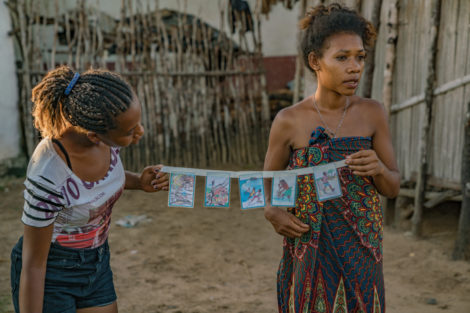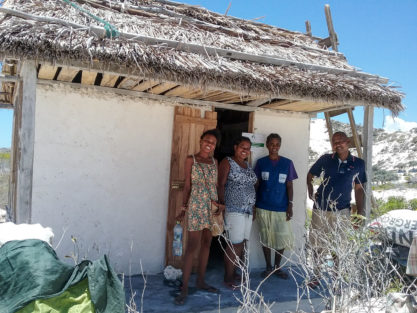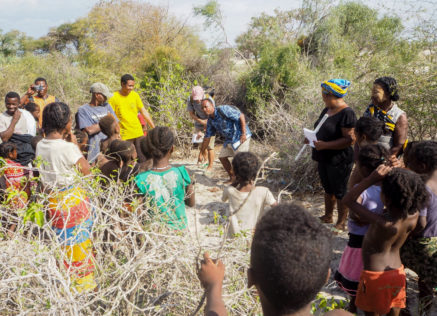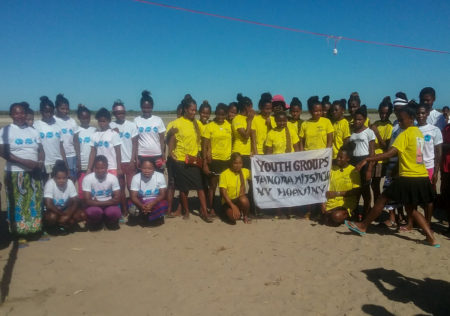Often in my life, and in particular with my work in international development, I have strongly related to this quote from French philosopher Bernard de Chartres:
We are like dwarfs sitting on the shoulders of giants. If we see more things than they, and things at a greater distance, it is not because of the sharpness of our sight or our greatness, but because we are raised up high by them.”
This has certainly held true for my two years working with Blue Ventures in Madagascar.
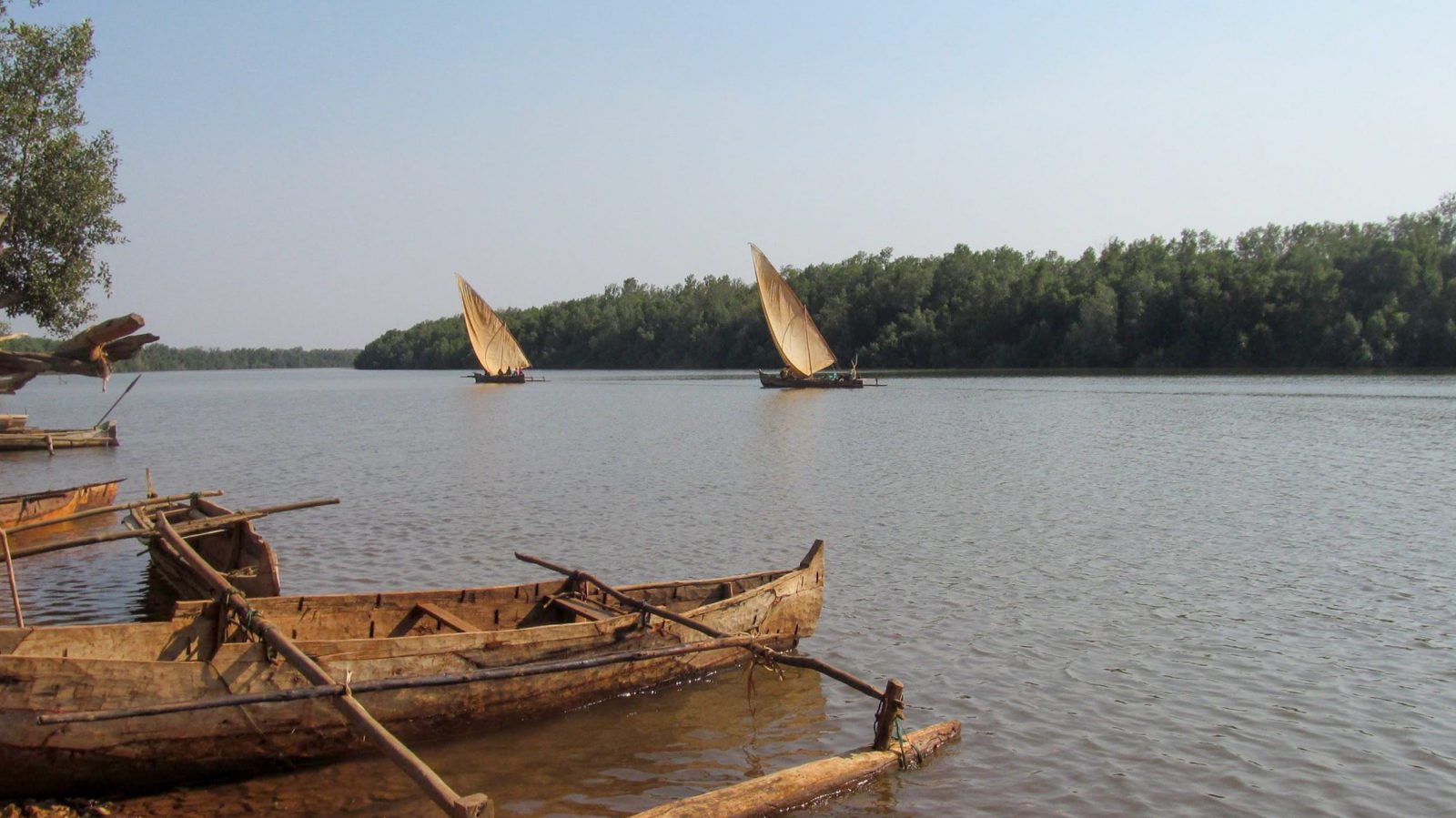
Fishers near Mahajamba Bay, northwest Madagascar | Photo: Jen Hacking
15 August 2018 is Safidy’s 11 year anniversary, an appropriate time to reflect on where we were a year ago, celebrate our accomplishments, and consider what lies ahead.
Last August, Blue Ventures celebrated the ten year anniversary of its community health programme, known in Madagascar as “Safidy” (the Malagasy word for “choice”). Integrating family planning with marine conservation was a giant leap for a small conservation organisation, and each step since then has required innovation, teamwork and the continued trust and support of the communities we work with.
Looking back at my two years with Safidy, I am reminded of how I, and everyone else in the organisation, has benefited from the progress, experience, and passion of those who came before us. It’s amazing how much the programme has transformed and improved since its inception. Family planning, maternal and child health, and water, sanitation, and hygiene services are all now major components of Blue Ventures’ work.
15 August 2018 is Safidy’s 11 year anniversary, so it felt like an appropriate time to reflect on where we were a year ago, celebrate our accomplishments, and consider what lies ahead for the programme.
This last year has seen us continue to deliver high quality health services in low-resource settings, pilot new activities that diversify our services and continue to meet the needs of communities, including:
- Developing the Safidy programme in two new sites – Ambanja and Mahajamba – in the northwest of Madagascar
- Strengthening the supervision and support given to community health workers (CHWs)
- Improving our programme monitoring through monthly reports, mobile reporting and community maps
- Partnering with Marie Stopes to deliver long-acting reversible contraceptives
- Supporting the health education of youth groups
- Sharing learning between the Safidy teams in different sites
- Conducting joint missions with the Ministry of Health
- Facilitating health and environment discussions with new outreach tools such as decision-making stories and PHE Madagascar’s story cards
- Piloting Community-Led Total Sanitation (CLTS)
- Improving access to HIV testing and treatment
- Strengthening our maternal and child health services to include Helping Babies Breathe training, and support and information sessions for traditional birth attendants
Some of these accomplishments are perfect examples of building on past work. For 11 years the Safidy team have been refining and improving how we supervise and support CHWs, how we collect and monitor service delivery data, and the coverage of our maternal and child health work. They are not new activities, but they are developing in a way that was likely unimaginable to the Safidy team back in 2007.
We have made great strides in the last year, but that isn’t to say that we haven’t experienced our own set of challenges.
We have made great strides in the last year, but that isn’t to say that we haven’t experienced our own set of challenges. This year in particular we’ve had to expand beyond health service provision and consider pressing logistical needs for our rapidly growing team. Developing Safidy in two new sites has required the recruitment of motivated and experienced staff who embody our values, and the streamlining of communication channels within and across our sites so that the teams feel connected and can easily share learning and best practices.
Over the last year I have seen the Safidy team grow both personally and professionally. People who could barely speak English or French a year ago are now communicating with their colleagues, and their new language skills have opened up a whole world of opportunities and information. I’ve seen staff grow from technical specialists to competent leaders and managers, gaining trust from colleagues and communities alike with more creative thinking and better problem-solving.
What I love about Blue Ventures is that, despite our rapid growth, our values and approach are still very similar to how they were in the very beginning. We are still listening to the communities we work with to ensure that their needs and priorities are aligned with the services that Safidy offers. As a result, we are investigating potential opportunities for improving access to safe drinking water over the coming years.
However, another serious challenge for Safidy is the increase in bandit attacks and the overall decline in safety in Madagascar. We need to think even more about the feasibility and outcomes of our activities: Can our teams travel safely to the villages? Where will our team sleep? Could the economic benefits brought about by an activity increase potential risks? How do you reduce the prevalence of malaria when communities are afraid to sleep in their houses at night? How can a CHW ensure that her clients receive adequate and consistent medication if they are constantly moving?
Transferring ownership of activities has always been part of Blue Ventures’ approach. By strengthening community agency, ownership, and resiliency in this way, we hope that those who are hardest to reach will not be left behind.
These questions and challenges are sometimes heartbreaking, but they are never debilitating. The communities that we serve continue to be resilient, and their perseverance and positivity always inspires me. Despite their limited resources and occasionally harsh living conditions, they continue to share their stories and work with us to make their communities a better place for themselves and for future generations.
With those future generations in mind, we have designed handover strategies for all of our activities, where ownership will be transferred to communities, partners, or the government over the course of the next ten years. The political landscape of Madagascar is changeable, and sudden shifts in policy or governance can influence the direction and growth of the Safidy programme. The aim of Safidy is to strengthen the health system in Madagascar, regardless of our presence in the future.
Transferring ownership of activities has always been an integral part of Blue Ventures’ approach, as by strengthening community agency, ownership, and resiliency in this way, we hope that those who are hardest to reach will not be left behind, even in the face of unprecedented challenges. Activity handovers also provide us with opportunities to diversify our services and address community needs and priorities that we haven’t before.
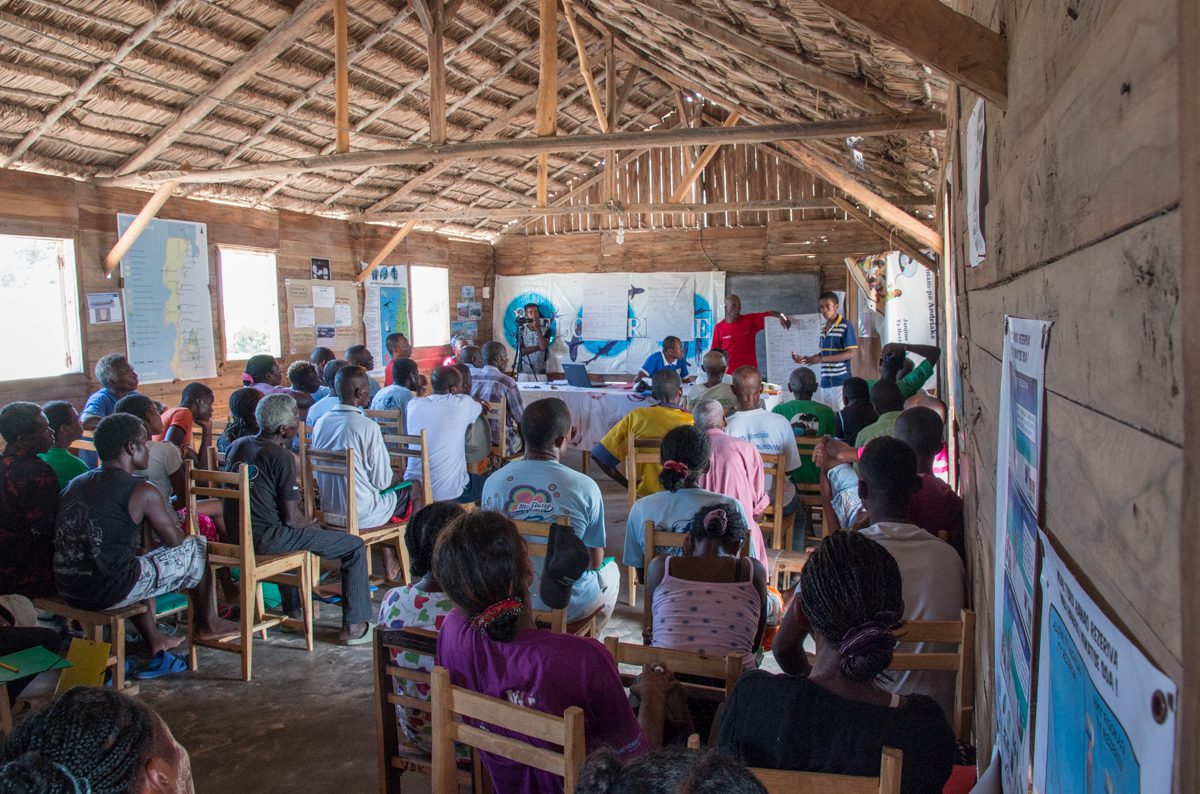
The Velondriake Association in session in Andavadoaka, southwest Madagascar | Photo: Ben Honey
For personal reasons I will be leaving Blue Ventures at the end of August. I wouldn’t say that I’ve become a giant in my two years with Blue Ventures, but I hope and trust that those who follow me will stand on my shoulders, just as I have stood on the shoulders of those who came before me. With this mentality and culture we can ensure that we are always making progress, continually gaining new experience, and never losing our passion for transforming health outcomes so that remote coastal communities can better engage in and manage their natural resources.
Learn more about the Safidy programme and Blue Ventures’ first steps into community health
Thanks to all those that have supported the Safidy programme over the years, including the Helmsley Charitable Trust and the MacArthur Foundation.
Cover image by Ben Honey


